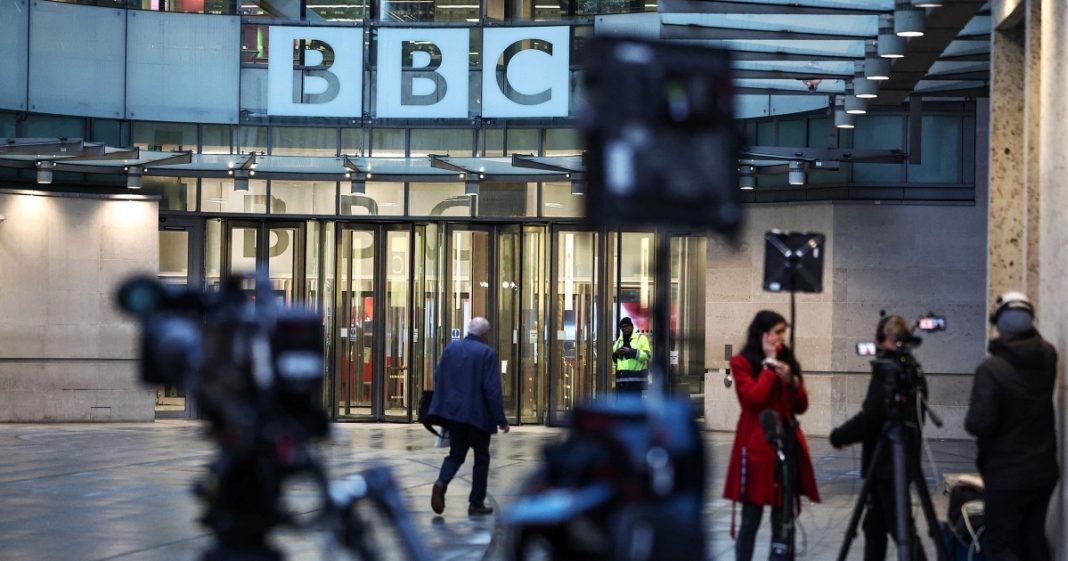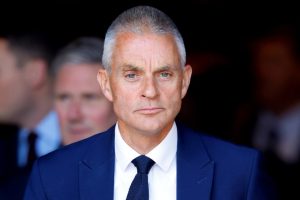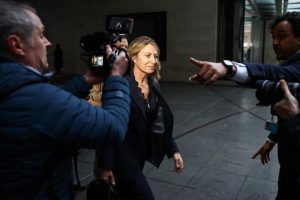Trump Threatens $1 Billion BBC Lawsuit Over Edited Speech as Top Execs Resign
Key Takeaways
- Trump threatens $1 billion lawsuit against BBC for election interference
- BBC Director General Tim Davie and News CEO Deborah Turness resign
- BBC chairman apologizes for “error of judgement” in editing Trump’s Jan 6 speech
- Crisis raises questions about BBC’s future funding and impartiality
Former President Donald Trump has threatened to sue the BBC for $1 billion, accusing the British broadcaster of election interference through edited footage of his January 6 speech. The legal threat comes as BBC’s top executives resign amid mounting pressure over the controversy.
BBC Apologizes for Edited Speech
BBC Chairman Samir Shah apologized Monday for what he called an “error of judgement” in the network’s editing of Trump’s speech. A day before last year’s election, BBC’s “Panorama” program spliced together sections of Trump’s January 6 address, including his “fight like hell” line while omitting his call for peaceful protest.
“The BBC defamed President Trump by intentionally and deceitfully editing its documentary in order to try and interfere in the Presidential Election,” a spokesman for the President’s outside legal team told NBC News. “President Trump will continue to hold accountable those who traffic in lies, deception, and fake news.”
Trump’s Reaction and Resignations
A BBC spokesperson stated they would “review the letter and respond directly in due course” to Trump’s legal threat. The former president celebrated the resignations of BBC Director General Tim Davie and News CEO Deborah Turness on Sunday.
“The TOP people in the BBC, including TIM DAVIE, the BOSS, are all quitting/FIRED, because they were caught ‘doctoring’ my very good (PERFECT!) speech of January 6th,” Trump posted on Truth Social. “These are very dishonest people who tried to step on the scales of a Presidential Election. On top of everything else, they are from a Foreign Country, one that many consider our Number One Ally. What a terrible thing for Democracy!”
Mounting Political Pressure
The controversy began when the Daily Telegraph leaked an internal memo about the edited speech. Trump’s press secretary Karoline Leavitt called the BBC “purposefully dishonest” and “100 per cent fake news.”
Deborah Turness, arriving at BBC headquarters Monday, defended her journalists: “Of course our journalists aren’t corrupt. Our journalists are hardworking people who strive for impartiality.” She added, “The buck stops with me. But I’d like to make one thing very clear, BBC News is not institutionally biased.”
Broader Implications for BBC
Even BBC supporters acknowledge the organization faces challenges. Guto Harri, former BBC chief correspondent and Boris Johnson’s communications director, told NBC News: “I’m a big defender of the BBC… But there is a default at the organization toward the liberal left.”
“The BBC has been institutionally biased for decades,” Nigel Farage, Trump ally and Reform party leader, declared in London. “The license fee as it currently is cannot survive. It is wholly unsustainable.”
The BBC’s funding model requires households to pay around $230 annually to watch or download BBC content. Non-payment can lead to prosecution and fines up to $1,300.
BBC’s Global Reach and Challenges
Supporters highlight the BBC’s extensive services: eight TV channels, 10 national and 40 local radio stations, plus digital content and the BBC World Service reaching 450 million weekly listeners worldwide.
However, the broadcaster faces pressure from both political wings – from right-wing critics over bias and left-wing critics over coverage of issues like the Gaza conflict.
The crisis comes at a critical time with the BBC’s Royal Charter expiring in 2027 and Nigel Farage gaining popularity in polls. Trump has now emerged as a significant voice in this ongoing debate about the future of Britain’s public broadcaster.
Alex Smith reported from London, Garrett Haake from Washington and Steve Kopack from New York.







